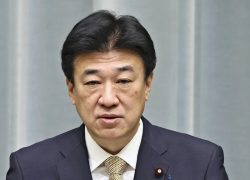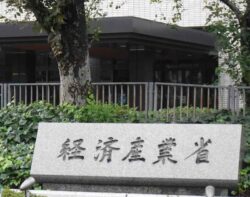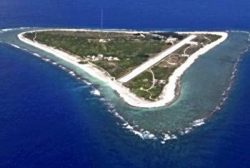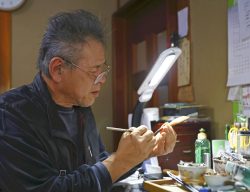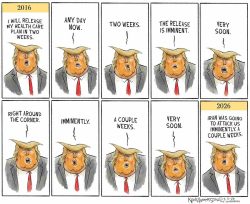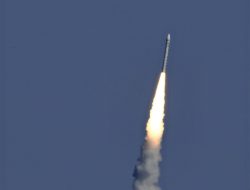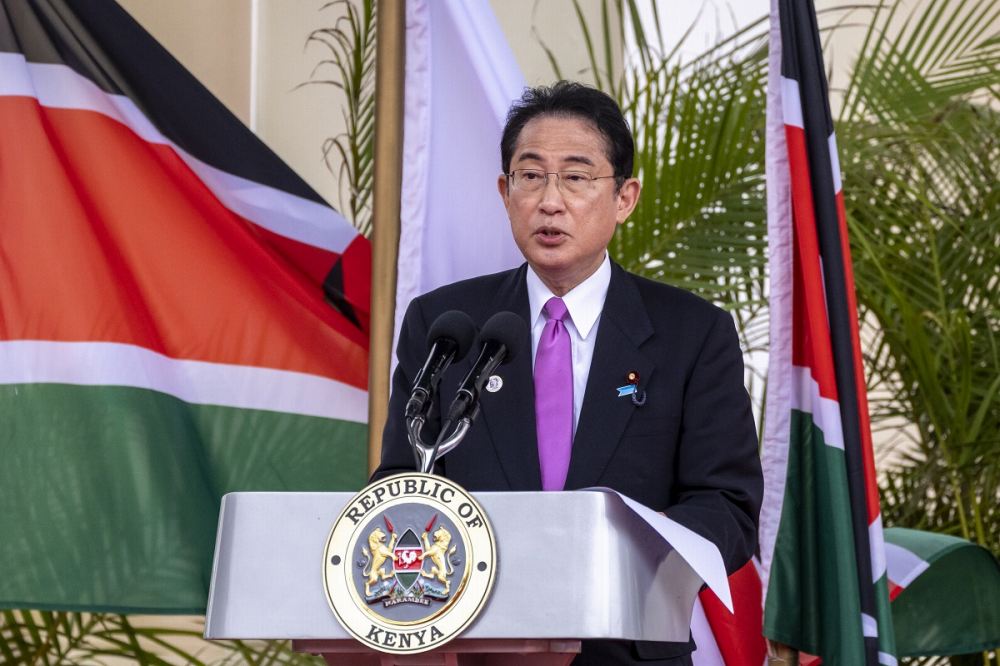
Japanese Prime Minister Fumio Kishida speaks during a joint press conference with Kenyan President William Ruto after meeting at State House in Nairobi on Wednesday.
15:01 JST, May 5, 2023
MAPUTO – Prime Minister Fumio Kishida wrapped up his tour of four African nations Thursday. The trip was largely deemed a success but differences on several key international issues also came to light.
Kishida and the African leaders he met agreed on the importance of maintaining international order based on the rule of law, as he sought to bring more of the emerging and developing nations collectively known as the Global South into the coalition of countries opposing Russia’s invasion of Ukraine. However, many African nations have historically held deep ties with China and Russia, so their positions did not neatly align with Kishida’s on all issues.
Kishida nevertheless felt his African visit had produced positive results. “What’s required of Japan is to serve as a bridge between the G7 and Global South and to ensure the rule of law is upheld,” he said at a press conference held in Mozambique’s capital of Maputo on Thursday. “This was a meaningful visit that will lead to good discussions at the G7.”
Russia and China have both been expanding their footprint in Africa. The primary objective of Kishida’s visit was to drive a wedge between African nations and Beijing and Moscow, ahead of the Group of Seven summit meeting that will be held in Hiroshima from May 19 to 21. In January and February, Russian Foreign Minister Sergei Lavrov visited seven African nations, and Chinese Foreign Minister Qin Gang chose Africa for his first foreign trip. Both Russia and China are clearly adopting an approach that attempts to counter efforts by Japan, the United States and Europe to shape international opinion on issues such as the invasion of Ukraine.
Kishida’s trip took him to Kenya, a democracy and economic hub in East Africa, and Ghana, which shares those traits and is in West Africa. The prime minister also visited Egypt and Mozambique, both of which have close ties with China and Russia. “As host of the G7 summit, Japan can’t avoid also having difficult conversations with nations friendly toward China and Russia,” said a government official involved in selecting the destinations Kishida visited.
Kishida brought up Russia’s invasion of Ukraine during his talks with leaders on each stop of his African trip. Ghana and Kenya both singled out Moscow by name for criticism. However, even those two nations refrained from directly commenting on China. This revealed a noticeable difference in position with the G7 members, which share a certain degree of concern about some of China’s actions.
During his talks in each nation, Kishida also set out various forms of support, such as the construction of high-quality infrastructure, dealing with the food crisis, investment in startup companies and developing skilled human resources.
At the 8th Tokyo International Conference on African Development (TICAD 8) held in August 2022, Japan announced that assistance worth about ¥4 trillion for the African continent would be mobilized through the private and public sectors. Many African nations rely on Russia for their imports of wheat and depend on China for the construction of infrastructure projects. Aware of this situation, Japan is preparing to push back by providing meticulous support measures that it has become renowned for.
China focus
The African nations welcomed Kishida’s visit as a golden opportunity to expand their economic national interests, but their focus on China as a major trading partner looks likely to continue. According to the Atlantic Council, a U.S. think tank, China’s trade with the Sub-Saharan African region increased by 1,864% between 2001 and 2020.
Historically, U.S. interest in Africa has fluctuated depending on the inclination of the administration at the time. By contrast, China has consistently maintained a focus on Africa. Some observers say China and Russia (and the Soviet Union before that) also supported independence movements in various parts of Africa, which appears to have become a diplomatic advantage that the United States and Europe lack.
Top Articles in Politics
-

Japan PM Takaichi’s Cabinet Resigns en Masse
-

Sanae Takaichi Elected Prime Minister of Japan; Keeps All Cabinet Appointees from Previous Term
-

Japan’s Govt to Submit Road Map for Growth Strategy in March, PM Takaichi to Announce in Upcoming Policy Speech
-

LDP Wins Landslide Victory, Secures Single-party Majority; Ruling Coalition with JIP Poised to Secure Over 300 seats (UPDATE 1)
-

LDP Wins Historic Landslide Victory
JN ACCESS RANKING
-

Producer Behind Pop Group XG Arrested for Cocaine Possession
-

Japan PM Takaichi’s Cabinet Resigns en Masse
-

Man Infected with Measles Reportedly Dined at Restaurant in Tokyo Station
-

Israeli Ambassador to Japan Speaks about Japan’s Role in the Reconstruction of Gaza
-

Videos Plagiarized, Reposted with False Subtitles Claiming ‘Ryukyu Belongs to China’; Anti-China False Information Also Posted in Japan


